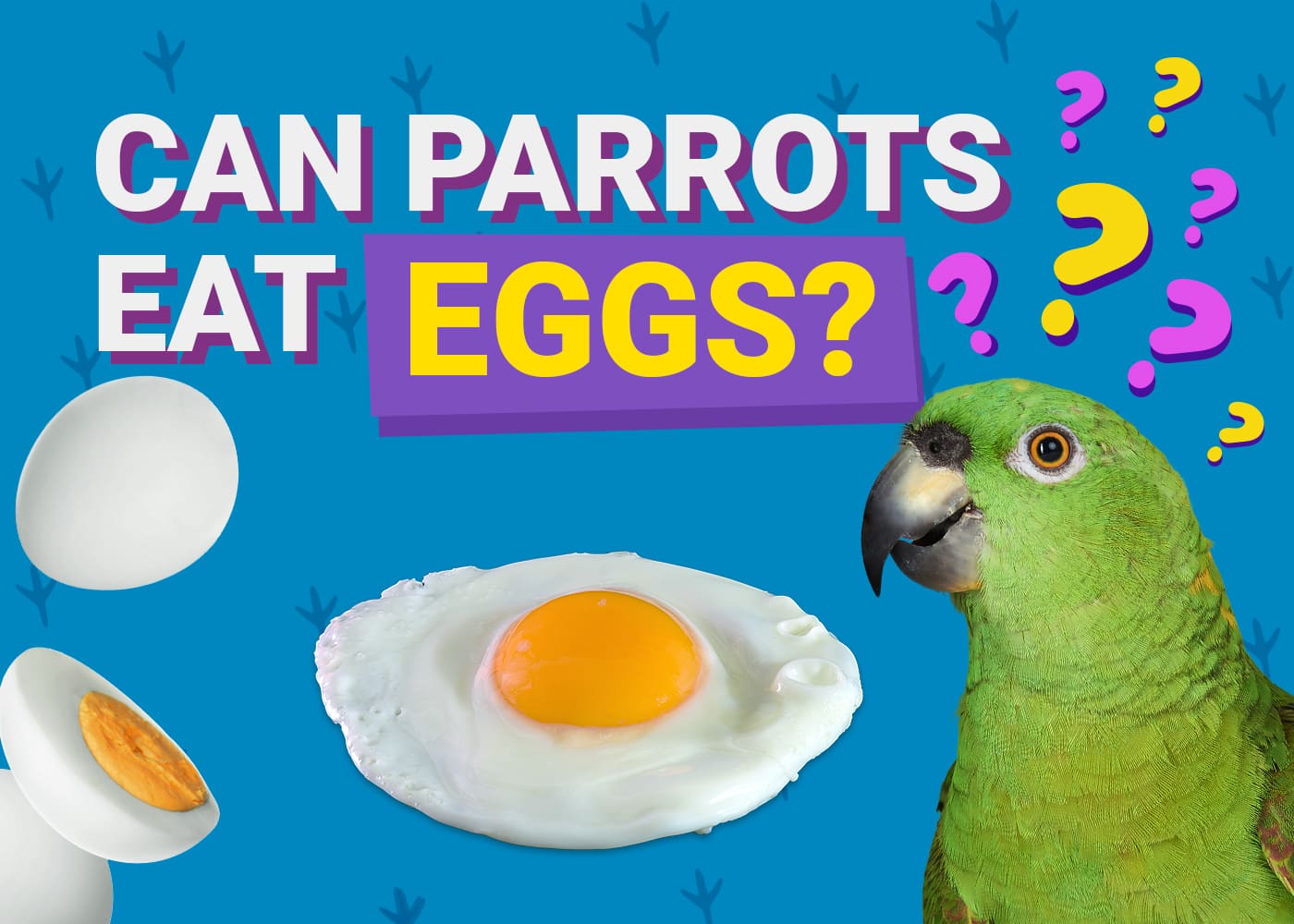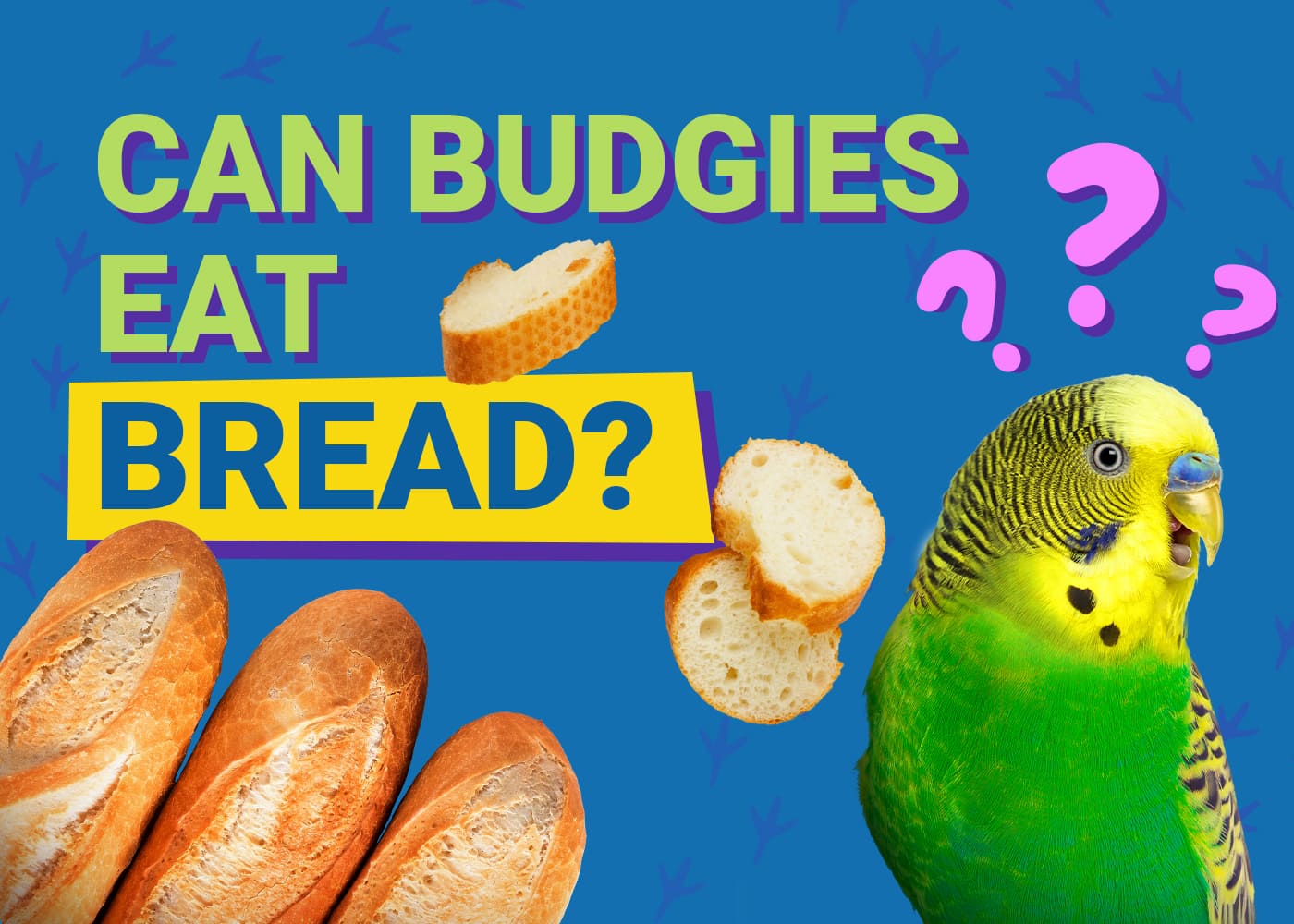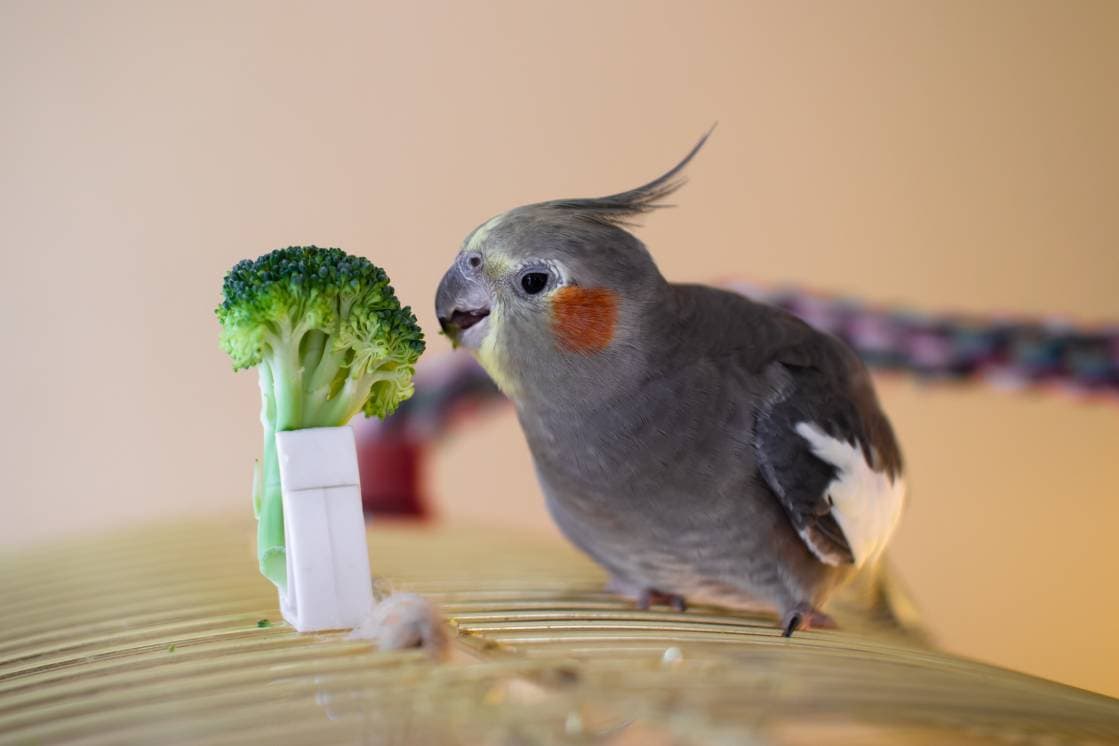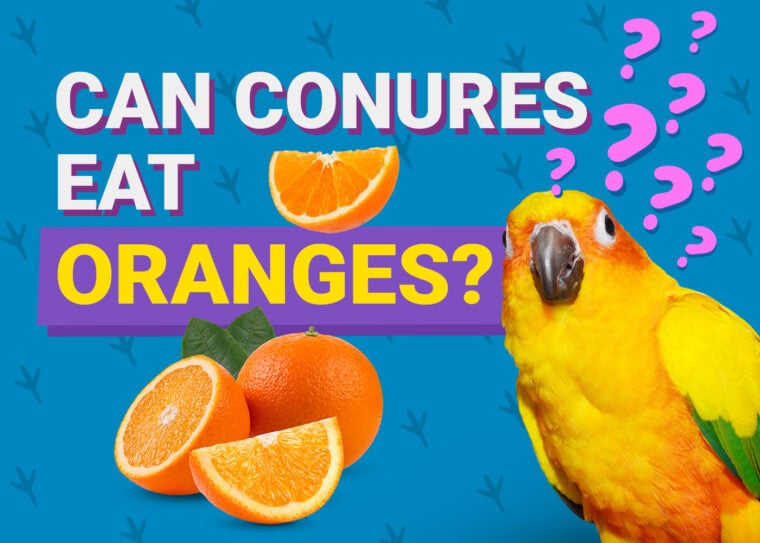
Conures are such beautiful little birds, and you’ve probably been feeding yours a variety of different fruits over the course of their life. What about oranges? We all know that oranges are good for us, but what about our conures?
Oranges are safe and healthy treats for your conure, but only in moderation. As beneficial as oranges are, they are also highly acidic and high in sugar, and too much of an orange could negatively impact your conure’s health.
If you would like to learn more, read on because we get more in-depth into the health benefits of oranges and what might happen if you give your conure too much of them.
A Conure’s Diet
Before we get into the good and bad of oranges for conures, let’s look at the typical diet for these small parrots.
In the wild, conures eat various nuts, seeds, berries, fruits, and vegetation and the occasional insect and larva. They feed primarily in the treetops.
In captivity, most conures eat a pellet diet and extra fruits, vegetables, and seeds. Pellets typically make up about 75% to 80% of the conure’s diet. They are comprised of a variety of food (veggies, fruit, grains, and corn), along with vitamins and minerals compressed into pellet form.
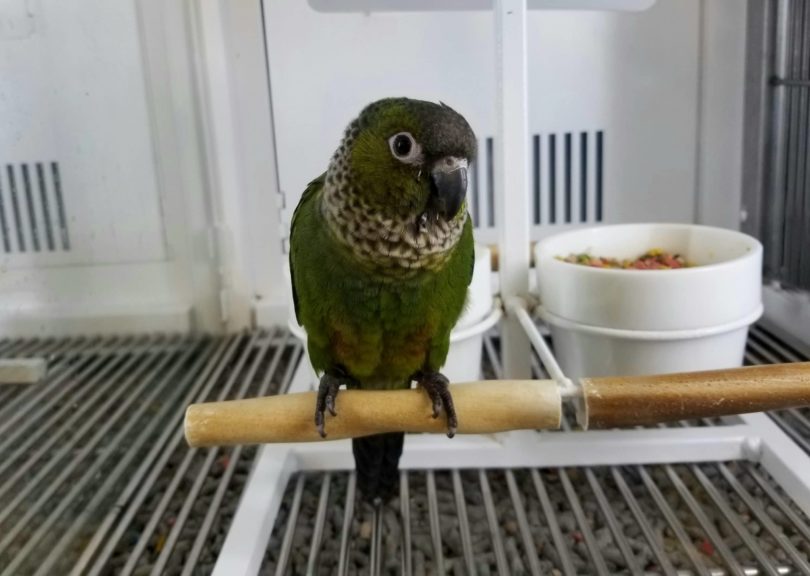
The rest of the diet is generally fresh vegetables, and while fruit should be a part of the diet, they should only make up a small portion and just once per day.
Healthy vegetables for conures includes:
The best fruit includes:
Let’s look now at the orange and the many health benefits that it offers.
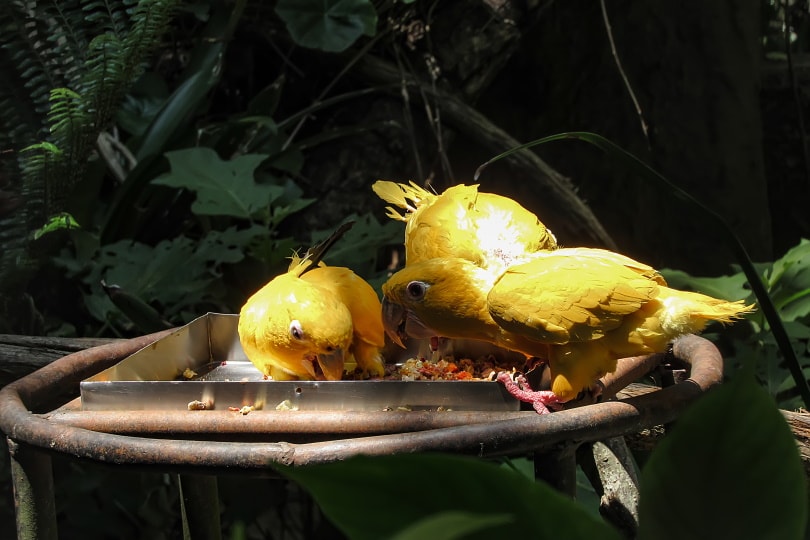
A Little Bit About the Orange
Oranges might be the fifth most popular fruit in the world (behind tomatoes, bananas, watermelons, and apples), but that doesn’t mean they aren’t the best! (Of course, that’s subjective.)
Oranges are grown on trees in tropical areas, specifically South Africa, Australia, the Mediterranean, and probably most famously, Florida.
Every orange (including the different kinds like navel, Cara Cara, and mandarins) actually contains more than 100% of the recommended amount of vitamin C a day! They are also full of vitamin A, calcium, thiamine, folate, fiber, and antioxidants.
The 3 Problems With Oranges
Oranges are definitely healthy snacks for your conure, but what happens if your conure eats too many?
While the health risks are few, they can still make your conure feel uncomfortable.
1. Digestive Problems
Oranges are full of fiber, so too many oranges can also mean too much fiber, which can potentially cause:
Too much fiber can also lead to deficiencies in other nutrients, such as calcium, iron, and zinc, because it can affect how they are absorbed by your conure. Additionally, fiber can make your bird feel fuller, which can mean that they will not want to eat anything else, and you don’t want your conure to only eat oranges.
Too much vitamin C can have the same effects as too much fiber: digestive upset, nausea, cramping, diarrhea, etc.
2. High Acidity
Oranges are high in citric acid, which is also known to cause heartburn in people. For your conure, too much citric acid can irritate the stomach, which could cause an upset stomach and watery stool.
3. High Sugar
Lastly, oranges are high in sugar, which is also known as fructose, and while it’s natural, it is still sugar. Just like with people, too much sugar can potentially cause your conure to gain weight, and there might be an increase in blood sugar levels. It can also potentially cause stomach upset and might be hard to digest.
Of course, all these health problems can be avoided by not feeding your conure too many oranges.
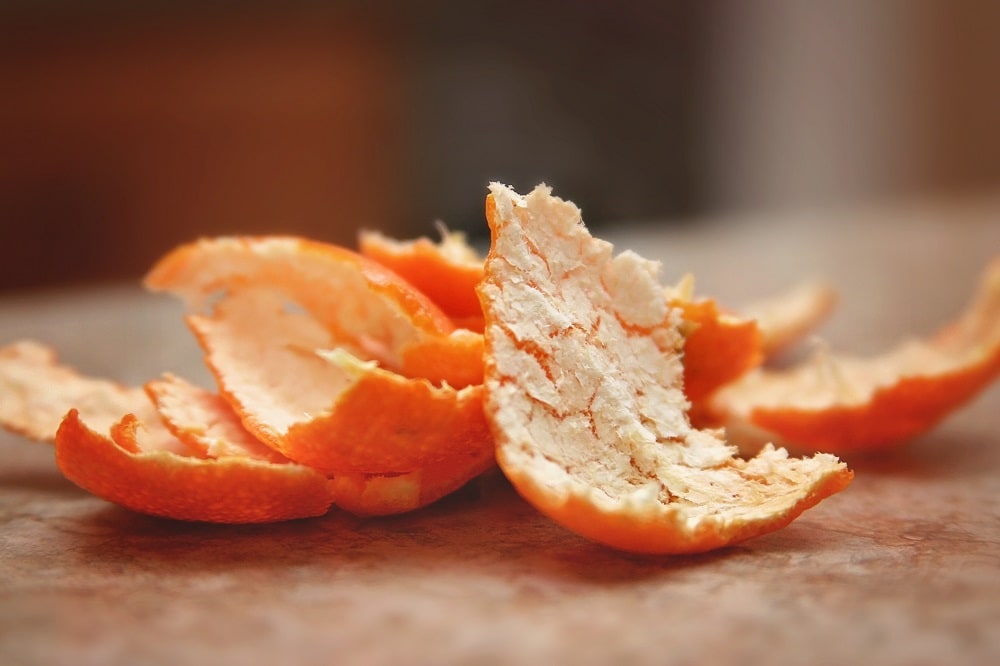
What About the Orange Peel?
Conures can eat the orange peel, but just be aware that most oranges have pesticides and chemicals on the peel. If you mix 1 teaspoon of baking soda with 2 cups of water, you can soak the orange for 15 minutes, which should remove most of the pesticides.
How Much Orange?
Oranges should be considered a treat, and you shouldn’t feed your conure more than one segment of orange every week. You’ll want to give your bird a variety of different fruit throughout the week, so the orange shouldn’t be given more than once or twice a week.
Give your conure a small amount of orange if it’s the first time that you’ve given it to your bird. It’s best to wash the peel before you actually peel it as you don’t want to transfer any of the pesticides to the orange itself. Also, cut the orange up into smaller pieces.

Conclusion
Oranges are a safe and healthy snack for your conure. A small amount of freshly squeezed orange juice is also acceptable. Avoid commercial orange juice, though, because it can be full of additives and preservatives.
Remember to just give a small segment of orange once or twice a week, as you don’t want to see your conure with an upset stomach or refuse to eat any other food. Your parrot’s health is entirely dependent on a varied diet.
If you’re ever in doubt about your conure’s health or diet, speak to your avian vet. Just keep doing your research before you give your pet anything new to eat. This way, you’ll have your conure around for many years to come!
Featured Image Credit by Piqsels


